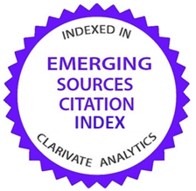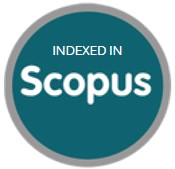La influencia de la comprensión cambiante del poder sobre la estrategia: un ensayo genealógico
DOI:
https://doi.org/10.21830/19006586.83Palabras clave:
estrategia, genealogía, Nietzsche, poder, crítica, ClausewitzResumen
El vínculo entre teoría social y la producción de conocimiento estratégico de innovación en diferentes contextos y épocas continúa siendo un interrogante complejo. No obstante, para los estratégicos que conforman una disciplina radicalmente instrumental, la noción de poder es el punto central de su relación con el mundo social. En consonancia con el pensamiento político de la escuela de Cambridge, el presente artículo presenta un breve ejercicio genealógico aplicado al modo estratégico de pensar en Occidente, con el propósito de obtener una mejor comprensión de su enfoque cambiante hacia la estrategia ‘en su propia dinámica’. Este ejercicio permite distinguir la fluctuante comprensión de cada una de las nociones de poder involucradas, y su concepto correlativo de crítica, como la precondición teórica más influyente para la innovación estratégica en estudios estratégicos. Nuestro análisis recorre de nuevo el camino de dos tradiciones con visiones antitéticas de la estrategia occidental, lo cual es de vital importancia para comprender la problemática de la innovación en estudios estratégicos. La primera tradición —siguiendo el pensamiento de Maquiavelo, Nietzsche y Foucault— concibe el sujeto en términos de las dinámicas técnicas de poder, en tanto que la segunda —siguiendo el pensamiento de Aristóteles, Kant y Habermas— lo dilucida a partir de las bases legítimas del poder. Los estudios estratégicos críticos no pueden integrar las percepciones de reflexividad —en tanto herramienta cognitiva diferenciador— dado que incorpora indistintamente estas dos perspectivas inconmensurables. Su consideración simultánea genera una tensión cognitiva inherente, de modo que suscita tanto el interés por una estrategia crítica para abordar discretamente el poder como fuerza y el poder como legitimación y la respectiva responsabilidad por parte del estratega de equilibrar sus implicaciones en la práctica.
Descargas
Referencias bibliográficas
Adorno, T. W. & M. Horkeimer. (1972) [1947]. La Dialectique de la raison. Paris: Gallimard.
Anderson, P. 1992. A Zone of Engagement. London: Verso.
Ansell-Pearson, K. (1995). The Significance of Foucault's Reading of Nietszche: Power, the Subject, and Political Theory. In P. R. Sedgwick (Ed.), Nietszche: A Critical Reader, Oxford: Blackwell, 13-30.
Aron (1976, Oct.). Conflicting Trends in Soviet Economics in the Post-Stalin Era. Russian Review, 35(4), 373-99.
Aron, R. (1967). Les étapes de la pensée sociologique: Montesquieu, Comte, Marx, Tocqueville, Durkheim, Pareto, Weber. Paris: Editions Gallimard.
Avineri, Sh. (1962, Oct.). Hegel and Nationalism. The Review of Politics 24(4), 461-484.
https://doi.org/10.1017/S0034670500012389
Barkawi, T. & Brighton, Sh. (Unpublished). Powers of War: Fighting, Knowledge, and Critique.
Barkawi, T. (1998). Strategy as a vocation: Weber, Morgenthau and modern strategic studies. Review of International Studies, 24, 159–84.
https://doi.org/10.1017/S0260210598001594
Baylis, J. & Smith, S. (2005). The Globalization of World Politics: An Introduction to International Relations (3rd. ed.). Oxford: OUP.
Bernstein, J. R. (1972). Praxis and Action. London: Duckworth.
https://doi.org/10.9783/9780812205497
Bernstein, J. R. (1979). The Restructuring of Social and Political Theory. Oxford: Basil Blackwell.
Bernstein, J. R. (1983). Beyond Objectivism and Relativism: Science, Hermeneutics, and Praxis. Oxford: Basil Blackwell.
Bernstein, J. R. (1991). The New Constellation: The Ethical-Political Horizons of Modernity/Postmodernity. Philadelphia: University of Pennsylvania Press.
Booth, K. & Wheeler, N. J. (2008). The Security Dilemma: Fear, Cooperation, and Trust. In World Politics. Basingstoke: Palgrave Macmillan.
Booth, K. (1979). Strategy and Ethnocentrism. London: Croom Helm Ltd.
Booth, K. (1995, Jan.). Human Wrongs and International Relations. International Affairs (Royal Institute of International Affairs 1944), 71(1), 103-126.
Booth, K. (2007). Theory of World Security. Cambridge: Cambridge University Press.
https://doi.org/10.1017/CBO9780511840210
Booth, K. (Ed.). (2005). Critical Security Studies and World Politics. London: Lynne Rienner.
Bourdieu, P. & Wacqant, L. J. D. (1992). An Invitation to Reflexive Sociology. Chicago: University of Chicago Press.
Bousquet, A. (2009). The Scientific Way of Warfare: Order and Chaos on the Battlefields of Modernity. London: Hurst Publishers.
Brodie, B. (1949, Jul.). Strategy as a Science. World Politics, 1, 467-88.
https://doi.org/10.2307/2008833
Brunner, O., Conze, W. & Koselleck, R. (Eds.). (1978). Geschichtliche Grundbegriffe. Historisches Lexikon zur politisch-sozialen Sprache in Deutschland. Stuttgart: Klett-Cotta.
Caird, E. (1883). Hegel. Edinburgh and London: William Blackwood & sons.
Campbell, D. & Dillon, M. (1993). Postface: The Political and the Ethical. In D. Campbell & Dillon, M. (Eds.). The Political Subject of Violence. Manchester: Manchester University Press.
Campbell, D. (1992). Writing Security, United States Foreign Policy and the Politics of Identity. Manchester: Manchester University Press.
Clausewitz, C. v. (1976). On War (trans. Michael Howard & Peter Paret). Princeton, NJ: Princeton University Press.
Cox, R. W. (1981). Social Forces, States and World Orders: Beyond International Relations Theory. Millennium: Journal of International Studies, 10(2), 126-155.
https://doi.org/10.1177/03058298810100020501
Craig, G. A. (1986). Delbriick: The Military Historian. In P. Paret, Makers of Modern Strategy: from Machiavelli to the Nuclear Age. Princeton, NJ: Princeton University Press.
Creveld, M. v. (1991). The Transformation of War. New York: Free Press.
Dean, M. (1994). Critical and effective Histories: Foucault's Methods and Historical Sociology. London: Routledge.
https://doi.org/10.4324/9780203414217
Delbrück, H. (1982). History of the Art of War: Within the Framework of Political History. Vol. 3: The Middle Ages (trans. by Walter J. Renfroe, Jr.). London: Greenwood Press.
Deleuze, G. (1983) [1962]. Nietzsche and Philosophy. New York: Columbia University Press.
Devetak, R. (2007). Between Kant and Pufendorf: Humanitarian Intervention, Statist Anti-Cosmopolitanism and Critical International Theory. Review of International Studies, 33: Supplement S1, 151–74.
https://doi.org/10.1017/S0260210507007449
Downing, B. (1992). The military revolution and political change: origins of democracy in early modern Europe. Princeton: Princeton University Press.
Dufort, Ph. (2017). Clausewitz y Sociedad: una introducción biográfica a las lecturas neo-clausewitzianas (Trad. H. M. Alvarado. Ed. J. A. Suárez). Bogotá: Escuela Militar de Cadetes, Sello Editorial ESMIC.
Echevarria, I. & Antulio, J. (2000). After Clausewitz: German Military Thinkers Before the Great War. Lawrence: University Press of Kansas.
Echevarria, I., & Antulio, J. (1995-96, Winter). War, Politics, and RMA: The Legacy of Clausewitz. Joint Force Quarterly (JFQ), 76-80.
Fichte, J. G. (1934). Los caracteres de la época contemporánea (trad. de José Gaos). Madrid: Revista de Occidente.
Fichte, J. G. (2008). Addresses to the German Nation. Cambridge: Cambridge University Press.
Finlayson, J. G. 2005. Habermas: A Very Short Introduction. Oxford: Oxford University Press.
https://doi.org/10.1093/actrade/9780192840950.001.0001
Flyvbjerg, B. (1998). Habermas and Foucault: Thinkers for Civil Society? British Journal of Sociology, 49(2), 210-33.
https://doi.org/10.2307/591310
Foucault, M. & Gordon, C. (1980). Power/knowledge: selected interviews and other writings, 1972-1977. New York: Pantheon Books.
PMid:6246137
Foucault, M. (1972). The Archaeology of Knowledge. London: Tavistock.
Foucault, M. (1977). Nietzsche, Genealogy, History. In D.B. Bouchard (Ed.). Language, Counter-memory, Practice. Oxford: Basil Blackwell.
Foucault, M. (1981). Questions of Method. I&C, 3-14.
Foucault, M. (1988). Politics and reason. In Politics, Philosophy, Culture: Interviews and Other Writings 1977–1984 (ed. L.D. Kritzman). New York: Routledge.
Foucault, M. (1991). Remarks on Marx: Conversations with Duccio Trombadori (trans. by R James Goldstein & James Cascaito). New York: Semiotext(e).
Foucault, M. (1998) [1967]. Nietzsche, Freud, Marx. In Aesthetics, Method, and Epistemology, Essential Works of Foucault, 1954-1984, Vol. 2. (Edited by P. Rabinow, R. Hurley; pp. 269-78). New York: New York Press.
Foucault, M. (2003). Society Must Be Defended: Lectures at the Collège de France, 1975–76. London: Penguin Books.
Foucault, M., Lawrence, D. & Kritzman, A. Sh. (1990). Politics, philosophy, culture: interviews and other writings, 1977-1984. London: Routledge.
PMCid:PMC171908
Garnett, J. (1975). Strategic Studies and Its Assumptions. In J. Baylis, K. Booth, J. Garnett & P. Williams, Contemporary Strategy: Theories and Policies, London: Croom Helm.
PMCid:PMC1956683
Geuss, R. (2002a). History and Illusion in Politics. Cambridge: Cambridge University Press.
Geuss, R. (2002b). Genealogy as Critique. European Journal of Philosophy, 10(2), 209-15.
https://doi.org/10.1111/1468-0378.00157
Geuss, R. (2008). Philosophy and Real Politics. Princeton: Princeton University Press.
https://doi.org/10.1515/9781400835515
Geuss, R. (1981). The Idea of a Critical Theory. Cambridge: Cambridge University Press.
Gilbert, F. (1977). History: Choice and Commitment. Cambridge, MA: Belknap Press of Harvard University Press.
https://doi.org/10.4159/harvard.9780674368521
Gowan, P. (2003). US: UN. New Left Review, 24, 5–28.
Gramsci, A. (1971). Selections from the Prisons Notebooks (Edited by Q. Hoare & G. N. Smith). New York: International Publishers.
Guzzini, S. (1993). Structural Power: The limits of neorealist power analysis, International Organization, 47(3), 443-78.
https://doi.org/10.1017/S0020818300028022
Guzzini, S. (2005). The Concept of Power: a Constructivist Analysis. Millennium, 33(3), 495-521.
https://doi.org/10.1177/03058298050330031301
Guzzini, S. (2006, March). Applying Bourdieu's framework of power analysis to IR: opportunities and limits (paper prepared for the Annual Meeting of ISA). San Diego.
Guzzini, S. (2007). The concept of power: A constructivist analysis. In F. Berenskoetter & M. J. Williams (Eds.; pp. 23-42). Power in World Politics. London: Routledge.
Habermas, J. (1974). Theory and Practice. London: Morrison & Gibb Ltd.
Habermas, J. (1981). Modernity versus Postmodernity. New German Critique, 22, 3-14.
https://doi.org/10.2307/487859
Habermas, J. (1984 [1981], 1987b). The Theory of Communicative Action, Vol. 1 and 2 (trans. by Th. McCarthy). Cambridge: Polity.
Habermas, J. (1986). Taking Aim at the Heart of the Present. In D. C. Hoy (Ed.). Foucault: A Critical Reader. Oxford: Blackwell Publishers.
Habermas, J. (1987a). The Philosophical Discourse of Modernity: Twelve Lectures (trans. F. Lawrence). Cambridge, MA: MIT Press.
Habermas, J. (1999, 29 April). Bestialität und Humanität. Die Zeit, 54(18), 1-8.
Hardt, M. & A. Negri (2004). Empire. Cambridge, MA, and London: Harvard University Press.
Hegel, G. W. F. (1802). On the Essence of Critical Philosophy (trans. H. S. Harris, Kritishces Journal der Philosophie [Critical Journal of Philosophy] 1(1), iii-xxiv.
Hegel, G. W. F. (2001) [1837]. The Philosophy of History. Kitchener: Batoche Books.
Hegel, G. W. F. (2012). The Philosophy of Right. Cambridge: Cambridge University Press.
Herberg-Rothe, A. (2007). Clausewitz's Puzzle: The Political Theory of War. Oxford: Oxford University Press.
https://doi.org/10.1093/acprof:oso/9780199202690.001.0001
Herberg-Rothe, A. (2009). Clausewitz's. Wondrous Trinity as a Coordinate System of War and Violent Conflict. International Journal of Conflict and Violence (IJCV), 3(2), 204-19.
Hobden, S. & Jones, R. W. (2005). Marxist Theories of International Relations. In J. Baylis & S. Smith. The Globalization of World Politics: An Introduction to International Relations (3rd ed.). Oxford: OUP, 225-49.
Hoffman, M. (1987). Critical Theory and the Inter-Paradigm Debate. Millennium Journal of International Studies, 16, 231-50.
https://doi.org/10.1177/03058298870160022801
Hoy, D. C. (Ed.). (1996). Foucault: A Critical Reader. Oxford: Blackwell Publishers.
Huntington, S. P. (1997). The Clash of Civilizations and the Remaking of World Order. New York: Simon & Schuster
Hutchings, K. (2001). The Nature of Critique in Critical International Relations Theory. In R. Wynn-Jones (Ed.). Critical Theory and World Politics. Boulder, Colorado: Lynne Rienner.
Huysmans, J. (1998). Dire et écrire la sécurité : le dilemme normatif des études de sécurité. Cultures & Conflits, 31-32, 177-202.
https://doi.org/10.4000/conflits.545
Jackson, P. & Kaufman, S. (2007). Security Scholars for a Sensible Foreign Policy: A Failure of Weberian Activism. Perspectives on Politics 5(1).
https://doi.org/10.1017/S1537592707070089
Jahn, B. (1998). One Step Forward, Two Steps Back: Critical Theory as the Latest Edition of Liberal Idealism. Millennium: Journal of International Studies, 27(3), 613–641.
https://doi.org/10.1177/03058298980270030201
Kalberg, S. (2002). La sociologie historique comparative de Max Weber. Paris: La Découverte.
Kaldor, M. (1990). The Imaginary War: Understanding the East-West Conflict. Oxford: Basil Blackwell.
Kaldor, M. (1999). New and Old Wars. Cambridge: Polity.
Kant, I. (2010). Political Writings (trans. by H. B. Nisbet). Cambridge: Cambridge University Press.
Kant. I. (2013a). Contestación a la pregunta: ¿Qué es la Ilustración? (edición y traducción de Roberto R. Aramayo, pp. 95-96). En I. Kant, ¿Qué es la Ilustración? Madrid: Alianza Editorial.
Kant. I. (2013b). Idea de una historia universal en clave cosmopolita (edición y traducción de Roberto R. Aramayo, pp. 99-125). En I. Kant, ¿Qué es la Ilustración? Madrid: Alianza editorial.
Keegan, J. (1993). A History of Warfare. London: Hutchinson.
Kelley, D. R. (1988). The theory of history. In Ch. B. Schmitt, Q. Skinner, E. Kessler & J. Kraye (Eds.), The Cambridge History of Renaissance Philosophy. Cambridge: Cambridge University Press, 746-62.
https://doi.org/10.1017/CHOL9780521251044.023
Kitchen, M. (1979). The Traditions of German Strategic Thought. International History Review, 1, 163-90.
https://doi.org/10.1080/07075332.1979.9640181
Kitchen, M. (1988). The Political History of Clausewitz. Journal of Strategic Studies, 11(1), 27-50.
https://doi.org/10.1080/01402398808437328
Kristeller, P. O. (1988). Humanism. In Ch. B. Schmitt, Q. Skinner, E. Kessler & J. Kraye (Eds.), The Cambridge History of Renaissance Philosophy (pp. 113-38). Cambridge: Cambridge University Press.
Liddell-Hart, B. (1933). The Ghost of Napoleon. New Haven: Yale University Press.
Liddell-Hart, B. (1946). The Revolution in Warfare. London: Faber & Faber Ltd.
Liddell-Hart, B. (1999). Stratégie. Paris: Perin.
Lines, D. A. (2002). Aristotle's Ethics in the Italian Renaissance (ca. 1300-1650): the universities and the problem of moral education. Leiden: Brill.
Linklater, A. (1990). Beyond Realism and Marxism: Critical Theory and International Relations. London: Macmillan.
https://doi.org/10.1057/9780230374546
Machiavelli, N. (1993). The Prince (edited by Q. Skinner & R. Price). Cambridge: Cambridge University Press.
Marcuse, H. 1969. An Essay on Liberation. New York: Pelican.
McNeill, W. H. (1982). The pursuit of power: technology, armed force and society since AD 1000. Chicago: The University of Chicago Press.
Meinecke, F. (1970) [1907]. Cosmopolitanism and the National State. Princeton: Princeton University Press.
Meinecke, F. (1977) [1906]. The Age of German Liberation, 1795-1815 (trans. P. Paret & H. Fisher). Berkeley: University of California Press.
Moggach, D. (1993). Fichte's Engagement with Machiavelli. History of Political Thought, 14(4), 573-89.
Münkler, H. (1993a). Reflexivity and International Relations Theory. Millenium 22(1), pp. 48-76.
Münkler, H. (1993b). Interpretation and the 'Science' of International Relations'. Review of International Studies, 19(1), 39-61.
https://doi.org/10.1017/S0260210500117334
Münkler, H. (2001). What's Critical About Critical International Relations Theory? In R. Wynn-Jones (Ed.). Critical Theory and World Politics. Boulder. Colorado: Lynne Rienner.
Münkler, H. (2004). Pitfalls of Emancipation and Discourses of Security: Reflections on Canada's 'Security with a Human Face'. International Relations, 18(1), 109-123.
https://doi.org/10.1177/0047117804041744
Münkler, H. (2004). The New Wars. Cambridge: Polity.
Neufeld, M. (1995). The Restructuration of International Relations Theory. Cambridge: Cambridge University Press.
https://doi.org/10.1017/CBO9780511598722
Outhwaite, W. (1995). Nietzsche and Critical Theory. In P. R. Sedgwick (Ed.), Nietszche: A Critical Reader (pp. 203-21). Oxford: Blackwell.
Peoples, C. L & Vaughan-Williams, N. (2010). Strategic Studies and its Critics. In J. Baylis, J. J. Wirtz & C. S. Gray (Eds.), Strategy in the Contemporary World (3rd ed.; pp. 354-71). Oxford: OUP.
Pocock, J. G. A. (1985). Virtue, Commerce, and History. Essays on Political Thought and History, Chiefly in the Eighteenth Century. Cambridge: Cambridge University Press.
https://doi.org/10.1017/CBO9780511720505
Pois, R. A. (1972). Friedrich Meinecke and German Politics in the Twentieth Century. Berkley: University of California Press.
Putnam, H. (2002). The Collapse of the Fact/Value Dichotomy: And Other Essays. Cambridge. MA: Harvard University Press.
Rawls, J. (1987) [1971]. Théorie et démocratie. Paris: Seuil.
PMCid:PMC2625661
Rengger, N. &Thirkell-White, B. (2007). Still Critical After All These Years? The Past, Present and Future of Critical Theory in International Relations. Review of International Studies, 33: Supplement S1, 3-24.
https://doi.org/10.1017/S0260210507007371
Ricoeur, P. (1978). Explanation and Understanding: On some Remarkable Connections Among the Theory of the Text, Theory of Action, and Theory of History. In C. Reagan & D. Stewart (Eds.), The Philosophy of Paul Ricoeur. Boston: Beacon Press.
Rosinski, H. (1976). Scharnhorst to Schlieffen: The Rise and Decline of German Military Thought. Naval War College Review, 29, 83-103.
Rothenberg, G. E. (1986). Moltke, Schlieffen, and the Doctrine of Strategic Envelopment. In P. Paret, Makers of Modern Strategy: from Machiavelli to the Nuclear Age. Princeton, NJ: Princeton University Press.
PMCid:PMC323184
Sanbonmatsu, J. (2004). The Postmodern Prince: Critical Theory, Left Strategy, and the making of a new Political subject. New York: Monthly Review Press.
PMCid:PMC1304690
Schmitt, Ch. B., Q. Skinner, E. Kessler & J. Kraye (Eds.). (1988). The Cambridge History of Renaissance Philosophy. Cambridge: Cambridge University Press.
https://doi.org/10.1017/CHOL9780521251044
Sellin, V. (1978). Politik. In O. Brunner, W. Conze, R. Koselleck (Eds.), Geschichtliche Grundbegriffe. Historisches Lexikon zur politisch-sozialen Sprache. In Deutschland (vol. 4; pp. 789-874). Stuttgart: Klett-Cotta.
Shapiro, M. J. (1992). Reading the postmodern polity: political theory as textual practice. Minneapolis: University of Minnesota Press.
Skinner, Q. (1988). Political philosophy. In Schmitt, Ch. B., Q. Skinner, E. Kessler & J. Kraye (Eds.), The Cambridge History of Renaissance Philosophy (pp. 389-452). Cambridge: Cambridge University Press.
https://doi.org/10.1017/chol9780521251044.014
Skinner, Q. (2002). Visions of Politics 1: Regarding Method. Cambridge: Cambridge University Press.
https://doi.org/10.1017/CBO9780511613784
Smith, S., Booth, Ken & Zalewski, M. (Eds.). (1996). International Theory: Positivism and Beyond. Cambridge: Cambridge University Press.
https://doi.org/10.1017/CBO9780511660054
Sterling, R. W. (1958). Ethics in a World of Power. The Political Ideas of Friedriech Meinecke. Princeton, New Jersey: Princeton Legacy Library.
PMCid:PMC1062809
Strachan, H. & Herberg-Rothe, A. (Eds.). (2007). Clausewitz in the Twenty-first Century. Oxford: Oxford University Press.
https://doi.org/10.1093/acprof:oso/9780199232024.001.0001
Strachan, H. (2007). Clausewitz's On War. London: Atlantic.
Sun Tzu. (2009). The Art of War. New York: Penguin Group.
Taylor, Ch. (1989). Sources of the Self: The Making of the Modern Identity. Cambridge, MA: Harvard University Press.
Teodori, M. (Ed.) (1969). The New Left: A Documentory History. Indianapolis: Bobbs-Merrill.
Tilly, C. (1975). The formation of national states in Western Europe. Princeton: Princeton University Press.
Vasoli, Cesare. (1988). The renaissance concept of philosophy. In Ch. B. Schmitt, Q. Skinner, E. Kessler & J. Kraye (Eds.), The Cambridge History of Renaissance Philosophy (pp. 55-74). Cambridge: Cambridge University Press.
https://doi.org/10.1017/CHOL9780521251044.005
Walker, R J B. (1997). The Subject of Security. In M. C. Williams & K. Krause (Eds.), Critical Security Studies: Concepts and Cases (pp. 61-81). London: UCL Press.
PMid:9139822
Wallach, J. L. (1986). The Dogma of the Battle of Annihilation: The Theories of Clausewitz and Schlieffen and Their Impact on the German Conduct of Two World Wars. Westport: Greenwood.
Weber. M. (1989) [1946]. Science as a Vocation. In P. Lassman & I. Velody (Eds.), Max Weber's 'Science as a Vocation' (pp. 18-24). London: Unwin Hyman Ltd.
PMid:10293003
Wheeler, N. J. (2000). Saving Strangers: Humanitarian Intervention in International Society. Oxford: Oxford University Press.
White, S. K. (Ed.). (1995). The Cambridge Companion to Habermas. Cambridge: Cambridge University Press.
https://doi.org/10.1017/CCOL052144120X.014
Wyn-Jones, R. (1999). Security, Strategy, and Critical Theory. Boulder: Lynne Rienner.
Descargas
Publicado
Cómo citar
Número
Sección
| Estadísticas de artículo | |
|---|---|
| Vistas de resúmenes | |
| Vistas de PDF | |
| Descargas de PDF | |
| Vistas de HTML | |
| Otras vistas | |

























